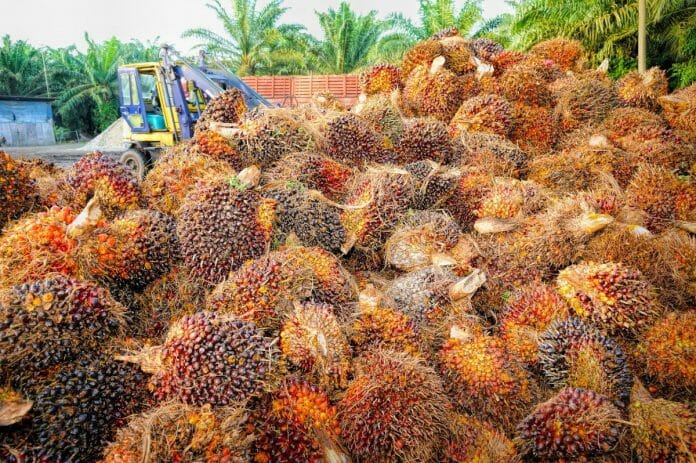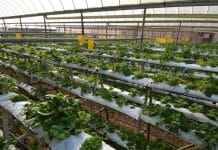Deputy Prime Minister Datuk Seri Fadillah Yusof has emphasized the importance of collaborative efforts to enhance the global recognition of Malaysia’s palm oil sector. Considering the substantial number of individuals dependent on this industry for their livelihoods, it becomes crucial to confront challenges and strive for sustainable approaches. While different stakeholders, including producers, governments, consumers, and NGOs, have distinct roles in ensuring market acceptance, technologists humbly contribute their specialized knowledge and skills, playing a vital part in fostering positive transformations and propelling the industry towards enhanced sustainability.
Technologists Driving Green Solutions
Technologists play a pivotal role in mitigating the environmental effects of palm oil production through their expertise and inventive approaches. They contribute solutions that tackle critical challenges and promote sustainability within the industry. An area of particular focus is the conversion of waste into renewable energy.
One prominent environmental challenge in palm oil milling processes is the emission of methane gas, a potent greenhouse gas. Technologists employ innovative strategies to effectively capture and utilize methane gas. By implementing efficient capture systems, they not only minimize greenhouse gas emissions but also harness methane gas as a valuable energy resource. This dual benefit not only reduces environmental impact but also contributes to the generation of renewable energy. As of now, around one-third of oil mills in Malaysia have successfully adopted biogas plants, marking a significant stride towards sustainable energy practices. This commendable initiative has yielded an annual reduction of approximately 700 kt of CO2 emissions. To put it in perspective, this reduction is equivalent to eliminating the emissions produced by 150 thousand gasoline-powered passenger vehicles driven continuously for an entire year. Such impactful progress demonstrates the positive environmental impact of integrating biogas plants into the palm oil industry in Malaysia.
Technologists demonstrate their expertise in converting palm sludge oil, which refers to the residual oil derived from palm oil mill effluent, into biodiesel. Through dedicated research and development, they create effective and sustainable techniques to convert this by-product into a valuable biofuel. Their innovative methods enable the transformation of palm sludge oil into a valuable resource, contributing to the production of eco-friendly biodiesel such as renewable diesel and biodiesel. Research indicates that biofuel derived from palm sludge oil has the potential to reduce greenhouse gas emissions by over 80% compared to conventional fossil fuels. Technologists contribute to reducing greenhouse gas emissions and promoting a cleaner energy future by utilizing this biofuel as an alternative to traditional fossil fuels.
Technologists Revolutionize Palm Oil Production
Technologists, equipped with their specialized knowledge and skills, play a crucial role in optimizing production processes and enhancing efficiency within the palm oil industry. They possess the expertise to analyse and improve various stages of palm oil production, encompassing oil palm plantation management, milling, and refining. By applying their technical acumen, they identify opportunities for advancements, implement innovative solutions, and streamline operations.
Precision agriculture is one area where technologists excel. By leveraging advanced technologies like remote sensing, Geographic Information Systems, and drones, they gather precise data on soil conditions, palm trees’ health, and nutrient requirements. This valuable information enables them to implement targeted fertilization and irrigation practices, resulting in optimal resource utilization and increased crop productivity
Technologists play a vital and dynamic role in palm oil milling and refining processes through the implementation of advanced automation and control systems. By incorporating sensors and real-time monitoring devices, they fulfil multiple objectives. Firstly, they ensure that process parameters are optimized, leading to improved efficiency and reduced losses. Secondly, they enhance product consistency, resulting in high-quality palm oil products. Lastly, they work towards optimizing utility usage through heat integration and recovery. Their expertise in leveraging advanced technologies enables precise control, proactive maintenance, and data-driven optimization, resulting in increased efficiency, decreased utility consumption and reduced waste.
Technologists Shape MSPO Standards
The recent review of the Malaysian Sustainable Palm Oil (MSPO) standards involved palm oil growers, producers, and NGOs as well as technologists such as the Academic Research on Palm Oil Sustainability Network and the Palm Oil Special Interest Group of the Institution of Chemical Engineers. These technologists played a vital role in providing their expertise and insights to ensure a comprehensive and well-rounded review process.
Technologists bring invaluable expertise to diverse areas of palm oil production, ensuring alignment with the sustainability goals outlined by the MSPO certification. Their involvement encompasses environmental management, waste management, and the principles of the circular economy. Drawing upon their extensive knowledge and expertise, technologists actively collaborate with stakeholders to establish the foundational elements of sustainable palm oil production. Through their contributions, they aid in the development and implementation of vital measures and practices that promote environmental sustainability, social responsibility, and economic viability within the industry.
Technologists Pave the Way for Circular Biorefineries
Technologists, comprising researchers and engineers, play a vital role in shaping the future of palm oil production through their contributions to sustainable practices. By exploring the potential of bioeconomy and biorefinery models, they facilitate the transition from a linear production and waste generation model to a more sustainable and resource-efficient system.
Aligned with the principles of the circular economy, technologists actively contribute to the development of biorefineries that convert palm oil biomass into valuable resources. For instance, they can explore the upgrading of palm kernel cake to produce protein-rich poultry feed, reducing the country’s dependence on imported soybean meal in broiler diets. This not only enhances the economic viability of the palm oil industry but also contributes to a more sustainable and self-sufficient agricultural sector.
Additionally, technologists can focus on converting palm oil biomass, such as empty fruit bunches, into bioethanol through advanced bioconversion technologies. This could serve as alternatives to fossil fuels and contribute to reducing greenhouse gas emissions and help contribute to emission climate neutrality.
Moreover, technologists can investigate the utilization of palm oil biomass in the production of bio-based materials. By leveraging innovative biotechnological approaches, technologists can extract valuable compounds from palm oil biomass and integrate them into the production of sustainable packaging materials. This reduces dependence on non-renewable resources and promotes the use of bio-based alternatives. Through their expertise, technologists contribute to the development of environmentally friendly packaging solutions that align with the principles of sustainability. By harnessing innovative biotechnological approaches, they can extract valuable compounds from palm oil biomass and incorporate them into sustainable packaging materials, reducing reliance on non-renewable resources
Technologists play an integral role as part of the team driving acceptance of the palm oil industry
In summary, the contributions of technologists in the palm oil industry are instrumental in fostering positive change and securing market acceptance for Malaysia’s palm oil. Their efforts encompass the adoption of greener practices, adherence to certification standards, and active participation in research and development. By leveraging their expertise in enhancing efficiency, embracing innovative technologies, and promoting sustainability, technologists pave the way for a sustainable and prosperous industry. Through their dedication, the palm oil sector can overcome challenges, counter negative perceptions, and progress towards a more environmentally friendly future.
By Eur Ing Hong Wai Onn, a chartered chemical engineer and a Fellow of the Institution of Chemical Engineers and the Royal Society of Chemistry. He is also the author of “A Chemical Engineer in the Palm Oil Milling Industry”









